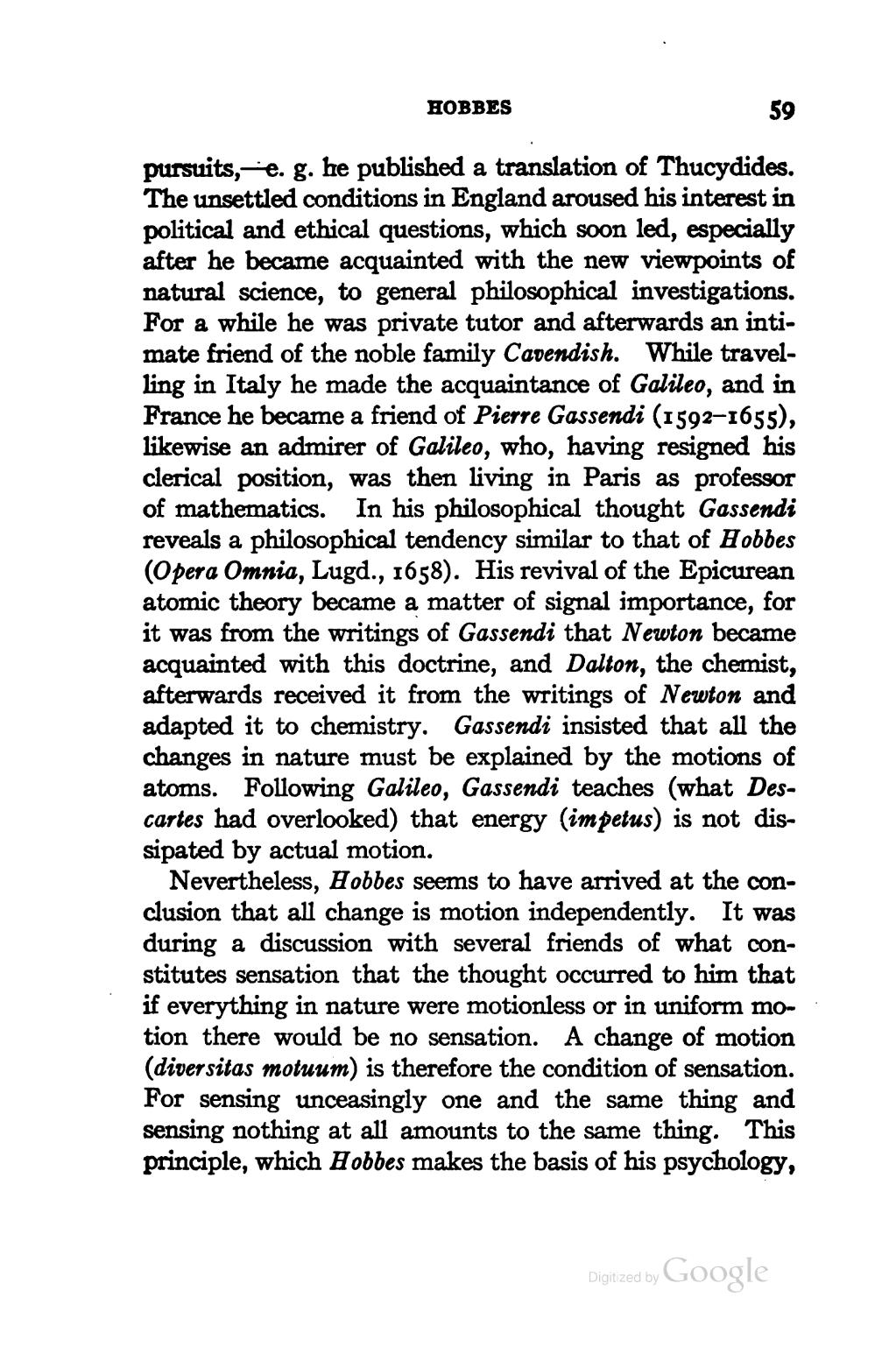pursuits,—e.g. he published a translation of Thucydides. The unsettled conditions in England aroused his interest in political and ethical questions, which soon led, especially after he became acquainted with the new viewpoints of natural science, to general philosophical investigations. For a while he was private tutor and afterwards an intimate friend of the noble family Cavendish. While travelling in Italy he made the acquaintance of Galileo, and in France he became a friend of Pierre Gassendi (1592-1655), likewise an admirer of Galileo, who, having resigned his clerical position, was then living in Paris as professor of mathematics. In his philosophical thought Gassendi reveals a philosophical tendency similar to that of Hobbes (Opera Omnia, Lugd., 1658). His revival of the Epicurean atomic theory became a matter of signal importance, for it was from the writings of Gassendi that Newton became acquainted with this doctrine, and Dalton, the chemist, afterwards received it from the writings of Newton and adapted it to chemistry. Gassendi insisted that all the changes in nature must be explained by the motions of atoms. Following Galileo, Gassendi teaches (what Descartes had overlooked) that energy (impetus) is not dissipated by actual motion.
Nevertheless, Hobbes seems to have arrived at the conclusion that all change is motion independently. It was during a discussion with several friends of what constitutes sensation that the thought occurred to him that if everything in nature were motionless or in uniform motion there would be no sensation. A change of motion (diversitas motuum) is therefore the condition of sensation. For sensing unceasingly one and the same thing and sensing nothing at all amounts to the same thing. This principle, which Hobbes makes the basis of his psychology,
